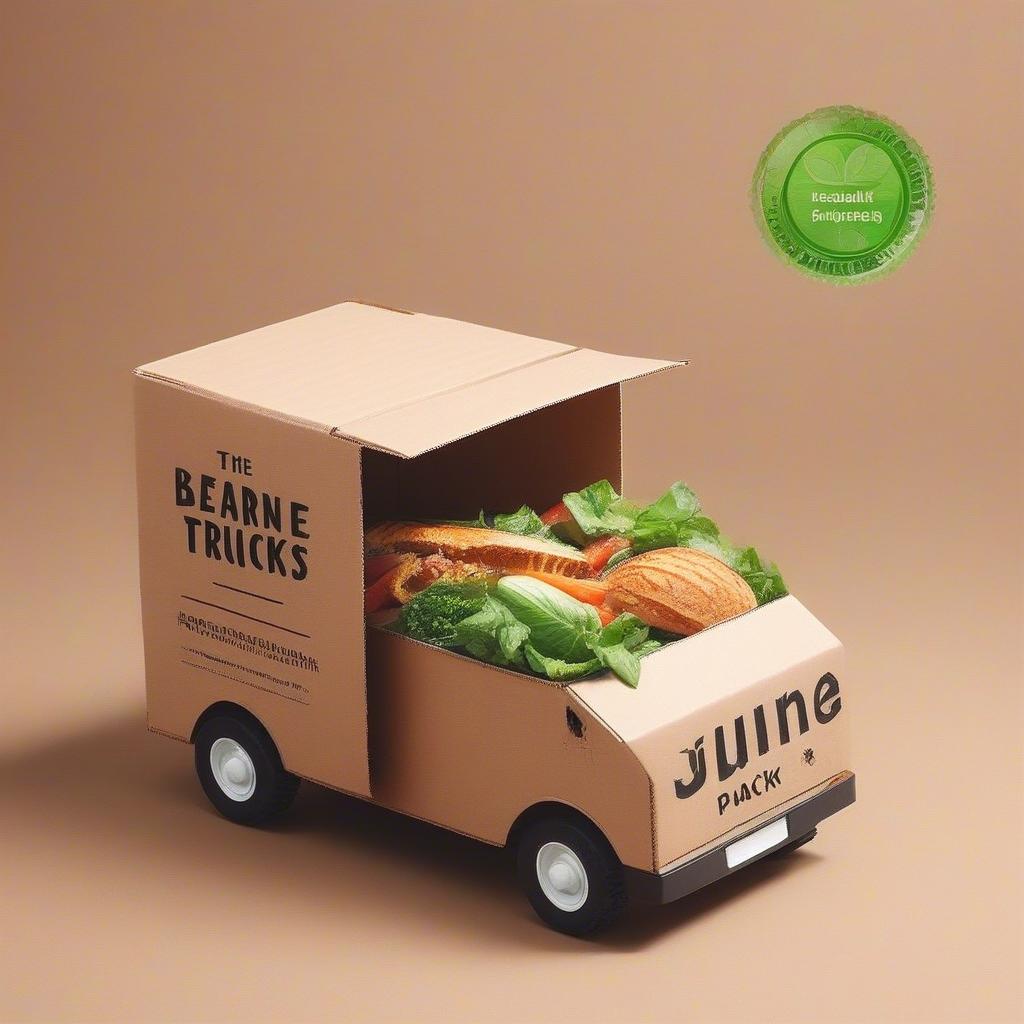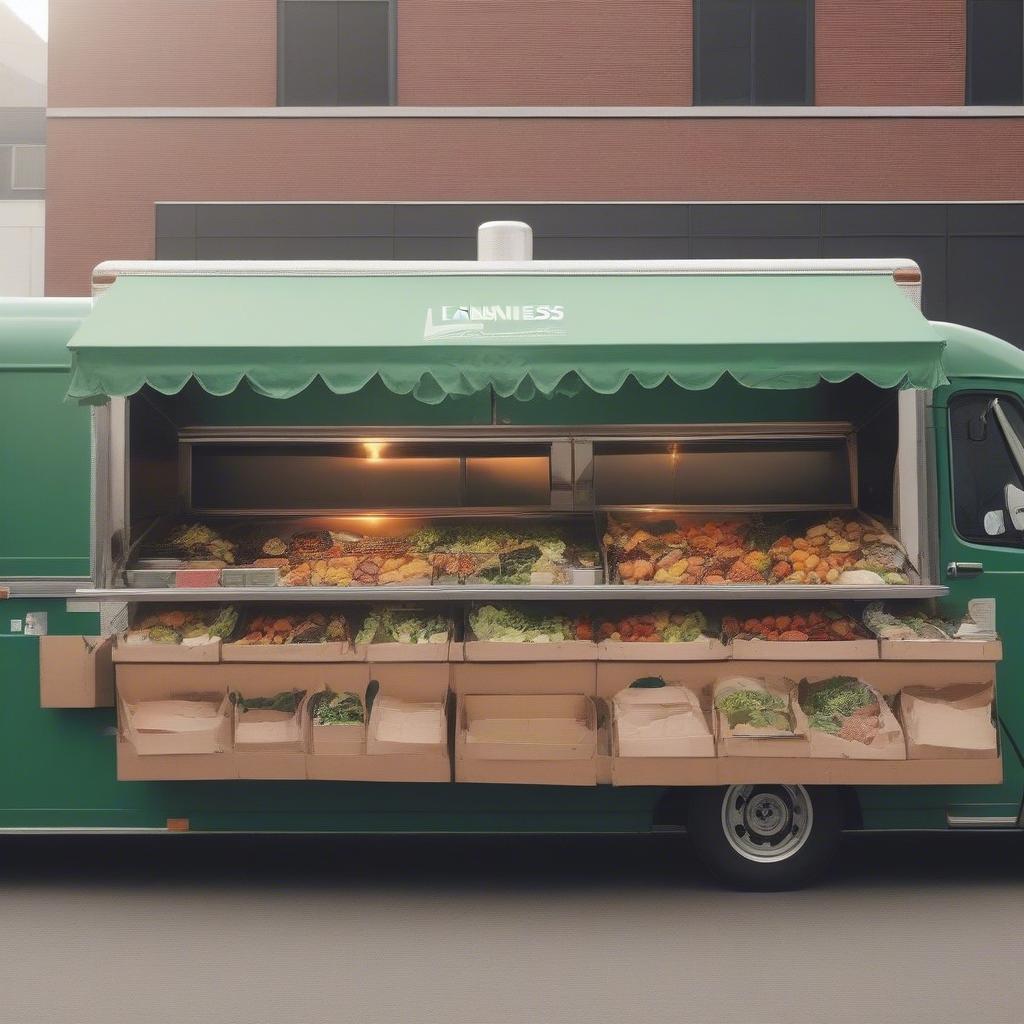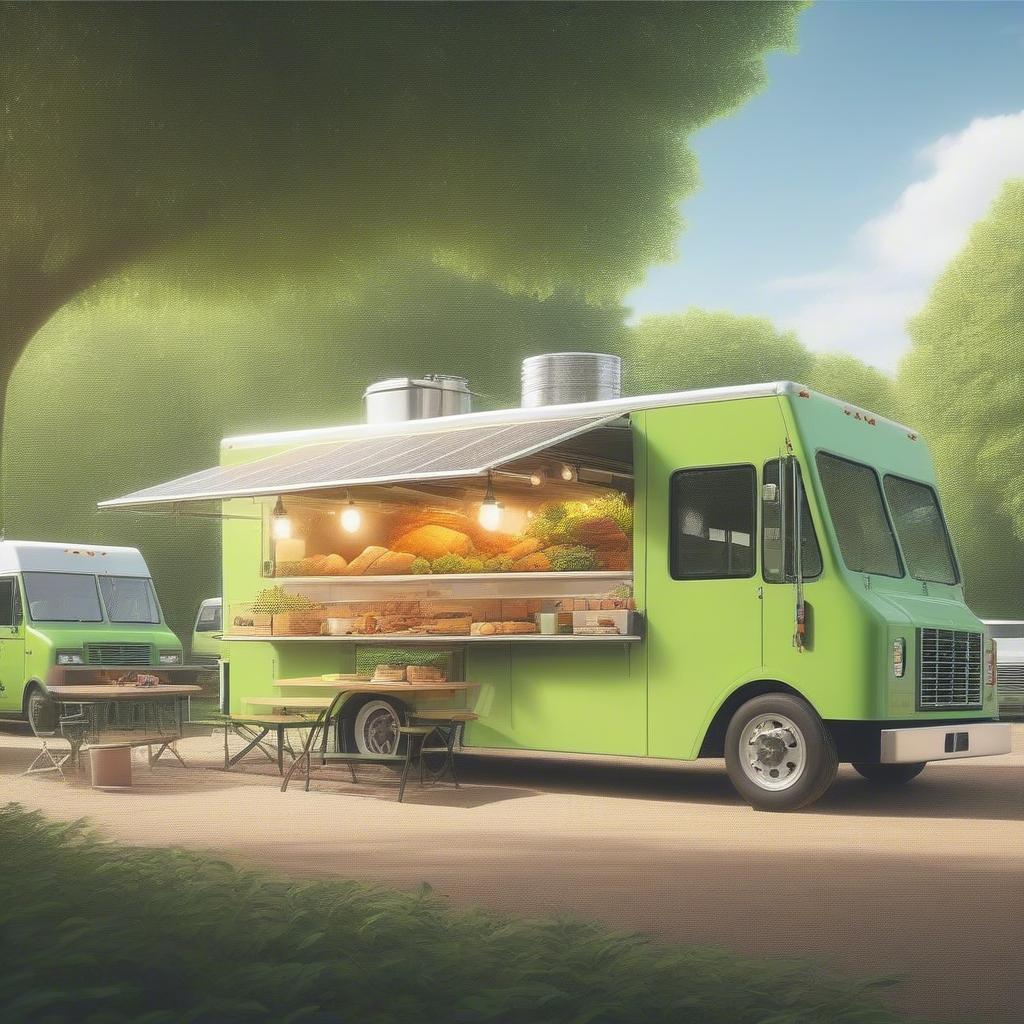
Starting a food truck is an exciting venture, a dream on wheels. But before you can start serving up your culinary creations, you need to navigate the often-complex world of permits and licenses. This isn’t just about ticking boxes; it’s about ensuring your business is legal, safe, and ultimately, successful. Think of these food truck permits and licenses as your business’s foundation – you wouldn’t build a house on shaky ground, and you shouldn’t launch a food truck without the proper legal framework. This comprehensive guide will break down everything you need to know to get your mobile kitchen up and running legally.
Why Are Food Truck Permits and Licenses Necessary?
Let’s face it, the paperwork involved in starting any business can feel overwhelming. So why bother with food truck permits and licenses? It’s not just about avoiding fines; it’s about protecting yourself, your customers, and your business.
- Legal Compliance: Operating without the necessary permits and licenses is illegal. You could face hefty fines, temporary or even permanent shutdowns, and damage to your reputation.
- Public Safety: Health permits ensure your food handling practices are safe and hygienic, protecting your customers from foodborne illnesses. Think of it as a stamp of approval that says, “We care about your well-being.”
- Business Credibility: Having the right permits and licenses builds trust with your customers and potential partners. It shows you’re a professional operator who takes their responsibilities seriously.
- Insurance Coverage: Most insurance companies require that your business be properly licensed to qualify for coverage. Operating without the right licenses might leave you unprotected in the event of an accident.
- Access to Locations: Many venues and events require vendors to show proof of proper permits and licenses before you can set up shop. This opens doors to more opportunities for you to serve your food.
Understanding the Types of Food Truck Permits and Licenses
The specific permits and licenses you need will vary depending on your location (city, county, and state) and the nature of your business. However, there are some common categories:
Business Operation Permits
These permits are essential for legally running a business, regardless of the food you’re selling.
1. Business License
This is the basic permission to operate a business in your jurisdiction. It validates your business as a legitimate entity within your city or county.
- What it is: A general permit that allows you to operate any type of business.
- Why you need it: To prove your business is officially registered and legally recognized.
- Where to get it: Usually from your city or county’s licensing department.
- Actionable Step: Research the specific requirements in your area. Look for terms like “Business License,” “General Operating Permit,” or “Vendor License.”
2. Employer Identification Number (EIN)
If you plan to hire employees or operate as a corporation or partnership, you will need an EIN from the IRS.
- What it is: A tax identification number for your business, like a social security number for a company.
- Why you need it: Required for hiring, opening business bank accounts, and certain tax filings.
- Where to get it: Apply online through the IRS website.
- Actionable Step: Visit IRS.gov and apply for your EIN today, even if you don’t plan on hiring right away. This is a foundational step for scalability.
3. Seller’s Permit/Sales Tax Permit
This permit allows you to collect sales tax on the goods you sell and remit it to the government.
- What it is: Permission to collect and pay sales tax.
- Why you need it: To comply with tax laws and avoid fines for failing to collect sales tax.
- Where to get it: From your state’s tax agency.
- Actionable Step: Research your state’s Department of Revenue and apply for your sales tax permit.
Food-Specific Permits and Licenses
These permits focus specifically on food handling, safety, and hygiene.
4. Health Permit/Food Handler Permit
This is a crucial permit that certifies your food preparation and handling processes meet health and safety standards.
- What it is: Certification from your local health department that your food handling practices are safe and sanitary.
- Why you need it: To protect your customers from foodborne illnesses and show that you comply with local health regulations.
- Where to get it: From your city or county health department. This often involves an inspection of your food truck.
- Actionable Step: Contact your health department to schedule an inspection. Be prepared to show your kitchen setup, how you store food, and your employee hygiene practices.
5. Food Handler Certification
This certification confirms that you and your staff have been trained in proper food handling techniques.
- What it is: Proof that you and your employees have undergone a food safety training program.
- Why you need it: To comply with food safety regulations and ensure safe food handling.
- Where to get it: Through an approved food handler certification program.
- Actionable Step: Look for accredited food handler certification courses online or in your area. Ensure they are recognized by your local health department.
6. Mobile Food Vendor Permit
This permit is specific to mobile food units, such as food trucks, and allows you to operate your business from a mobile unit.
- What it is: Permission to operate a mobile food vending business.
- Why you need it: Because a food truck is not a brick-and-mortar restaurant, it has unique regulations. This permit ensures you meet them.
- Where to get it: From your city or county licensing department.
- Actionable Step: Check with your local jurisdiction for the specific requirements for mobile food vendors.
Vehicle-Related Permits and Licenses
These permits cover the vehicle aspects of your business, ensuring that your truck is safe and compliant.
7. Vehicle Registration
Your food truck needs to be registered as a commercial vehicle.
- What it is: Official documentation of the food truck as a legal vehicle.
- Why you need it: To operate your vehicle legally on public roads and to comply with your state’s vehicle laws.
- Where to get it: From your state’s Department of Motor Vehicles (DMV).
- Actionable Step: Ensure your vehicle is properly registered, and you have the correct commercial plates.
8. Vehicle Inspection
Some states require regular inspections of commercial vehicles to ensure they meet safety standards.
- What it is: Safety check of your food truck to ensure that it’s operating safely.
- Why you need it: To protect you, your employees, and the public by ensuring your vehicle is roadworthy.
- Where to get it: From a certified vehicle inspection station.
- Actionable Step: Research the frequency and requirements for vehicle inspections in your state.
9. Fire Safety Permit
This permit ensures that your food truck meets fire safety regulations, such as having fire extinguishers and other fire safety equipment.
- What it is: A certificate proving your vehicle meets fire safety standards.
- Why you need it: To protect your truck, customers, and the public from fire hazards.
- Where to get it: From your local fire department.
- Actionable Step: Install the necessary fire suppression equipment and get your truck inspected by the fire department.
Other Potential Permits
Depending on your business specifics, you might need additional permits:
10. Zoning Permit
This permit ensures you are operating in a legally designated area for a food truck.
- What it is: Permission to operate within a specific zone designated for your type of business.
- Why you need it: Because not all areas are zoned for food trucks.
- Where to get it: From your city’s zoning or planning department.
- Actionable Step: Check your zoning regulations and ensure your planned locations are in approved zones.
11. Parking Permit
In certain areas, you may need permission to park and vend.
- What it is: Approval to park and sell food in specific areas.
- Why you need it: Because there may be time or location restrictions on food truck parking.
- Where to get it: From your city’s parking authority or police department.
- Actionable Step: Research parking restrictions and obtain the required permit for your locations.
12. Special Event Permit
If you’re operating at festivals, fairs, or other special events, you’ll likely need a special event permit.
- What it is: Permission to operate at specific events.
- Why you need it: Because events may have additional requirements above standard business permits.
- Where to get it: From the event organizers.
- Actionable Step: Apply for these in advance, as these permits often have deadlines.
How to Get Your Food Truck Permits and Licenses: A Step-by-Step Guide
Getting all these permits can seem daunting, but here’s a streamlined process to help you navigate it:
- Research Your Local Requirements:
- Action: Begin by visiting your city and county’s official websites. Look for sections related to business licenses, health permits, and food vending regulations. This is critical – every locality is different.
- Tip: Call the relevant departments. Talk to a real human – they can provide specific guidance, answer questions, and clarify any ambiguities.
- Create a Detailed Checklist:
- Action: Based on your research, list all the permits and licenses you need. Note the application processes, required documents, associated fees, and timeframes.
- Tip: Use a spreadsheet or project management tool to stay organized. This list is your roadmap to compliance.
- Gather Required Documents:
- Action: Begin collecting all necessary documentation. This may include:
- Business plan
- Proof of ownership of food truck or lease agreement
- Detailed menu and food preparation plan
- Employee details
- Proof of food handler certification
- Identification documents
- Vehicle registration
- Tip: Don’t wait until the last minute. Compile these documents early and keep digital copies for easy access.
- Action: Begin collecting all necessary documentation. This may include:
- Apply for Your Permits and Licenses:
- Action: Complete application forms carefully and honestly. Double-check each section before submitting.
- Tip: Submit applications online whenever possible for faster processing.
- Schedule Inspections:
- Action: Contact the health department and other relevant agencies to schedule your food truck inspection.
- Tip: Get your truck fully prepped before the inspection. Clean thoroughly, stock it, and make sure all equipment is functioning correctly.
- Address Issues:
- Action: If you have issues during the inspection, fix them quickly and request a reinspection.
- Tip: Don’t take a failed inspection as a failure, see it as an opportunity to improve and get it right.
- Pay Fees:
- Action: Pay all the required fees promptly to avoid delays in issuing permits and licenses.
- Tip: Track all your payments for accounting purposes.
- Display Your Permits:
- Action: Once you obtain all required permits and licenses, display them visibly in your food truck.
- Tip: This shows customers you are committed to transparency and compliance.
- Maintain Compliance:
- Action: Periodically review your permits and licenses and renew them as needed. Stay up-to-date with any changes in local and state regulations.
- Tip: Put renewal dates on your calendar so you don’t miss them. Failing to renew licenses can lead to fines and loss of the ability to operate.
- Seek Legal Counsel:
- Action: Consult with a business attorney to ensure you are fully complying with all laws.
- Tip: A good lawyer can help you navigate the complexities of permits and licenses, as well as guide you on best business practices.
Legal Tips for Food Truck Success
Securing your food truck permits and licenses is just the first step. Here are a few essential legal tips to help you run a thriving and compliant business:
- Business Structure: Choose the right business structure (sole proprietorship, LLC, partnership, corporation) for your business, each comes with unique legal and tax implications.
- Insurance: Obtain the necessary insurance coverage, including general liability, product liability, and workers’ compensation (if applicable).
- Contracts: Use clear and written contracts for all business transactions, including with suppliers, vendors, employees, and event organizers.
- Intellectual Property: Protect your brand identity by registering your business name, logo, and trademark.
- Food Safety: Implement and follow strict food safety procedures at all times.
- Employee Management: Comply with all labor laws. Ensure you properly classify your employees and have fair working terms.
- Tax Compliance: Stay up to date with all local, state, and federal tax requirements. Maintain meticulous financial records.
How Learn Business Supports You
At Learn Business, we understand that getting your food truck permits and licenses can feel overwhelming, and that’s just the start. We’re here to make the process simpler, clearer, and less stressful. We support businesses by providing guidance and templates specifically tailored to your needs.
- Step-by-Step Guides: We provide clear, easy-to-follow guides, breaking down the permit and licensing process into manageable steps.
- Customizable Templates: Gain access to templates for business plans, checklists, and compliance tracking, making it easier to get your business ready for launch.
- Legal Documentation: We help you understand contracts, compliance documentation, and other essential legal documents.
- Expert Guidance: Our team of experienced business advisors is available to provide personalized guidance to help your food truck thrive.
- Community Support: Join a community of like-minded entrepreneurs where you can share your experiences, ask questions, and learn from others.
Learn Business can be your trusted partner in launching your food truck dream and turning it into a successful reality.
Conclusion
Navigating the world of food truck permits and licenses can feel daunting, but it’s an essential part of starting your business the right way. With this comprehensive guide and the support of resources like Learn Business, you can confidently secure your permits and licenses and focus on what you love most – serving delicious food to happy customers. Remember, proper compliance isn’t just about avoiding fines; it’s about building a sustainable, reputable, and thriving business that can achieve your ultimate goals.



Leave a Reply